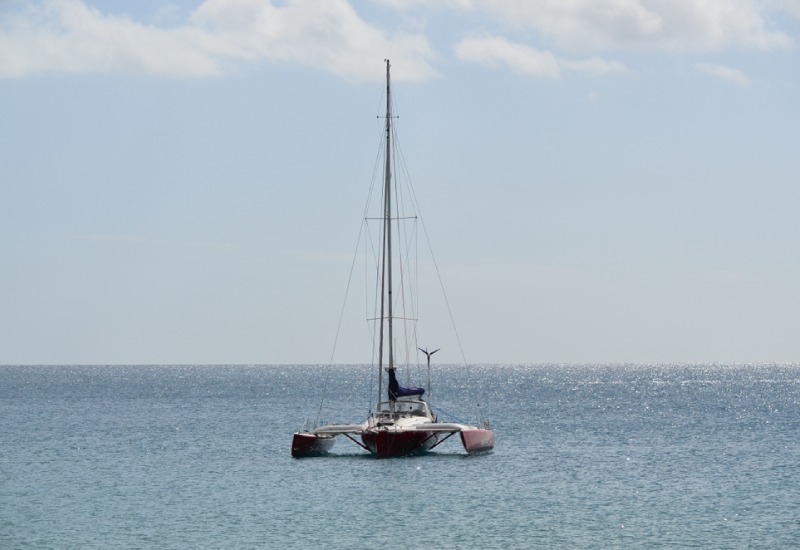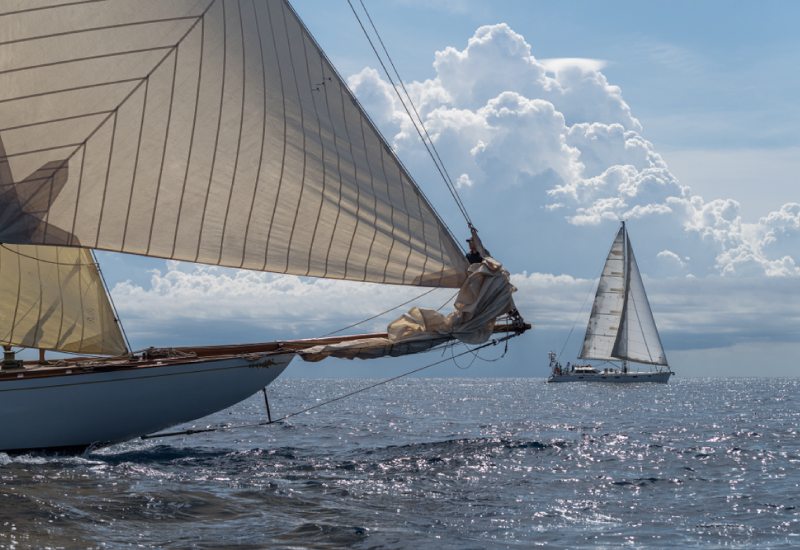Sailboat Types: Discover Them All!

Sailboats are classified based on some features. The number of hulls determines, among other things, how stable the boat is. A catamaran is more stable because of its two hulls, while a monohull is a disadvantage to anyone who wants to cook while sailing.
Sailboats are also classified according to their sloop, keel, and size, while the small sailboat types are ideal for racing.
Are you willing to discover all the existent sailboat types? Take a look at our fleet in Gotland Charter, or stay with us while we tell you in this post!
Types of Sailboat
The keel of a sailboat is one of the most important parts due to its purpose. Sailboats can work only because they have keels. The variations in the design of the keel are what are used to classify sailboats.
Note that the mast is probably the first thing that will catch the eye of anyone getting on a sailboat for the first-time.
Some examples of kinds of sailboats, according to the sloop, are frictional rig sloop, cutter, ketch, yawl, and cat rig.
Sailboat Hull Type
The hull of a sailboat is its body. Sailboat hull types are classified according to design, number, and size. According to size, they can be classified as a monohull, catamaran, or trimaran. The advantages and detailed descriptions of these boat types are as explained below.
Monohull
A sailboat with a single hull is referred to as a monohull. These boats are designed with performance in mind. In a calm or rough sea, you will have full control of your monohull. Their aesthetics are undeniable, and if what you are looking for is beauty, this sailboat is your choice. Because of its ease of maneuverability, a ride in this vessel will exhilarate you, especially when you see it slice easily through the water.
Catamaran
Two hulls of equal size placed in parallel and joined together using a beam; this is how a catamaran is designed, and this makes it more stable compared to the monohull. This stability makes this sailboat ideal for children and old people, and also makes it possible for you to cook while sailing. The inhabitants of the catamaran are also less likely to be seasick from the motion of the boat, as would be the case in a monohull. Its size is a plus, making it possible for you to separate living spaces.
Trimaran
A trimaran is a multi-hulled sailboat comprising of three hulls; the main one and two attached to it using beams. They are typically used as racing boats, recreational vessels, and warships. The buoyancy of the trimaran is provided by the main hull in the center, and support is provided by the side hulls. There is a gap between the main and side hulls, making the sailboat light. These vessels are, therefore, fast, making them some of the racing sailboat types.

Sailboat Keel Types
The keel is responsible for keeping a boat from going sideways and is attached to its lower part. Sailboat keel varieties include the full-length keel, wing keel, bilge keel, and centerboard.
Here is a sailboat types list based on their keel:
Full-Length Keel
The balance of a full-length keel sailboat is provided by the length and surface area of the keel rather than its depth. As the name suggests, the keel runs lengthwise at least 50% of the hull from the front to the rear of the boat. The rudder is used to turn the ship, and in a full-length keel, it is found at the rear. This type’s main advantages are that they allow for the sailboat to be grounded safely and ensure stability as its direction is changed.
Fin Keel
One of the types of sailboat keels is the fin keel, named so because of the way it is shaped. The fin-shaped plate is attached to the bottom of the hull using bolts and goes deeper than a full-length keel. As such, you are likely to find a king fin keel at the bottom of a race boat because as the deeper a hull is, the faster it is.
Wing Keel
Picture a fin keel that has two wings attached to the sides, and on the wings, a fat bulb at the center. The wing kee, also referred to as a bulb keel, is designed this way. Efficiency and ease of forward movement are advantages that arise from this shape. The small surface area of the keel and the fact that it is hydrodynamic reduce the friction and dragging effect of water on it.
Bilge Keel
How do you make it less likely for your sailboat to roll? You use a bilge keel in its design! They come in pairs, one found on each side, and they serve to reduce the resistance of the boat to the water. The plates are welded to the bottom of the hull in a V-shape; the bulge keel can handle even the severest of seas.
Centerboard
Sailboats with a centerboard have an open slot at the bottom of the hull into which a removable keel is placed. The sailor can choose to raise or lower it. When lowered, the centerboard works to prevent the sailboat from going sideways. Raising it enables the sailor to turn much faster since he or she will have more control.
Types of Sailboat Sails
The types of sails on a sailboat are also used in this classification. Sloop, fractional rig sloop, cutter, ketch, schooner, yawl, and cat types of sails on a sailboat and their purposes are as discussed below.

Sloop
The mast of a sailboat or a ship is a tall single spar or several of them that are erected vertically and support the sails. One of the sailboat rigging types is the fore and aft rig. Here, a mainsail and headsail and fixed on to a single mast at the front and the back. This is the sloop.
Fractional Rig Sloop
The fractional rig sloop is one of the sailboat rig types that are quite similar to the sloop. However, instead of having a mainsail and the headsail that are equally-sized, the former is usually larger. The difference between the two is usually a fraction, hence the name fractional rig sloop.
Cutter
The cutter’s singular masthead is found at the rear end of the boat. On it, there can be attached two foresails and a singular mainsail. The masthead may also have two of each of these sails. Cutters are ideal as sailboats because they can be navigated easily due to the small range of wind strengths needed.
Ketch
Ketches, just like yawls, have two masts. The main mast is the taller of the two and found at the front while a shorter mast is found on the aft end. Ease of control is the main advantage that ketch has, and is ideal for recreational cruises.
Schooner
A schooner may have two or more masts on which mainsails and foresails are fixed. Schooners are usually ideal for small racing sailboat types as they have were used in the past to engineer some of the fastest ships back then.
Yawl
There is a main and mizzen mast on the yawl. Unlike the ketch, the mizzen mast is considerably shorter, making it easier to handle and balance. If you are a sailor seeking connection to the sea and to a vessel you love, the yawl is one of the most romantic sailboats on the sea.
Cat
A cat rig is composed of a single sail, with the mast located near the bow of the boat. It is typical of catamarans, and is suitable for short distance and downwind sailing.
Our Sailboat Rental in Barcelona
This article merely gives you the theory about and types of sailboat. However, you only get the full experience by getting on a ride on a sailboat.
In Gotland Charter we offer a boat rental service that provide a large variety of sailboat types to pick on, depending on what you want to experience out on the sea. Take a look at our fleet!
Are you interested in the different types of sailboat? Visit our offices in Barcelona and rent one of our boats, so you can see them in action!
